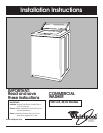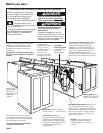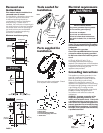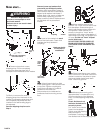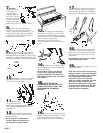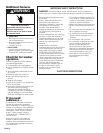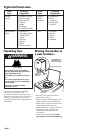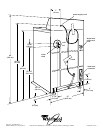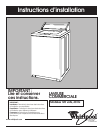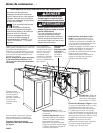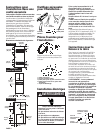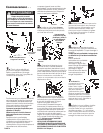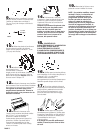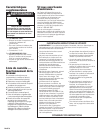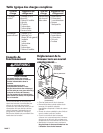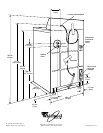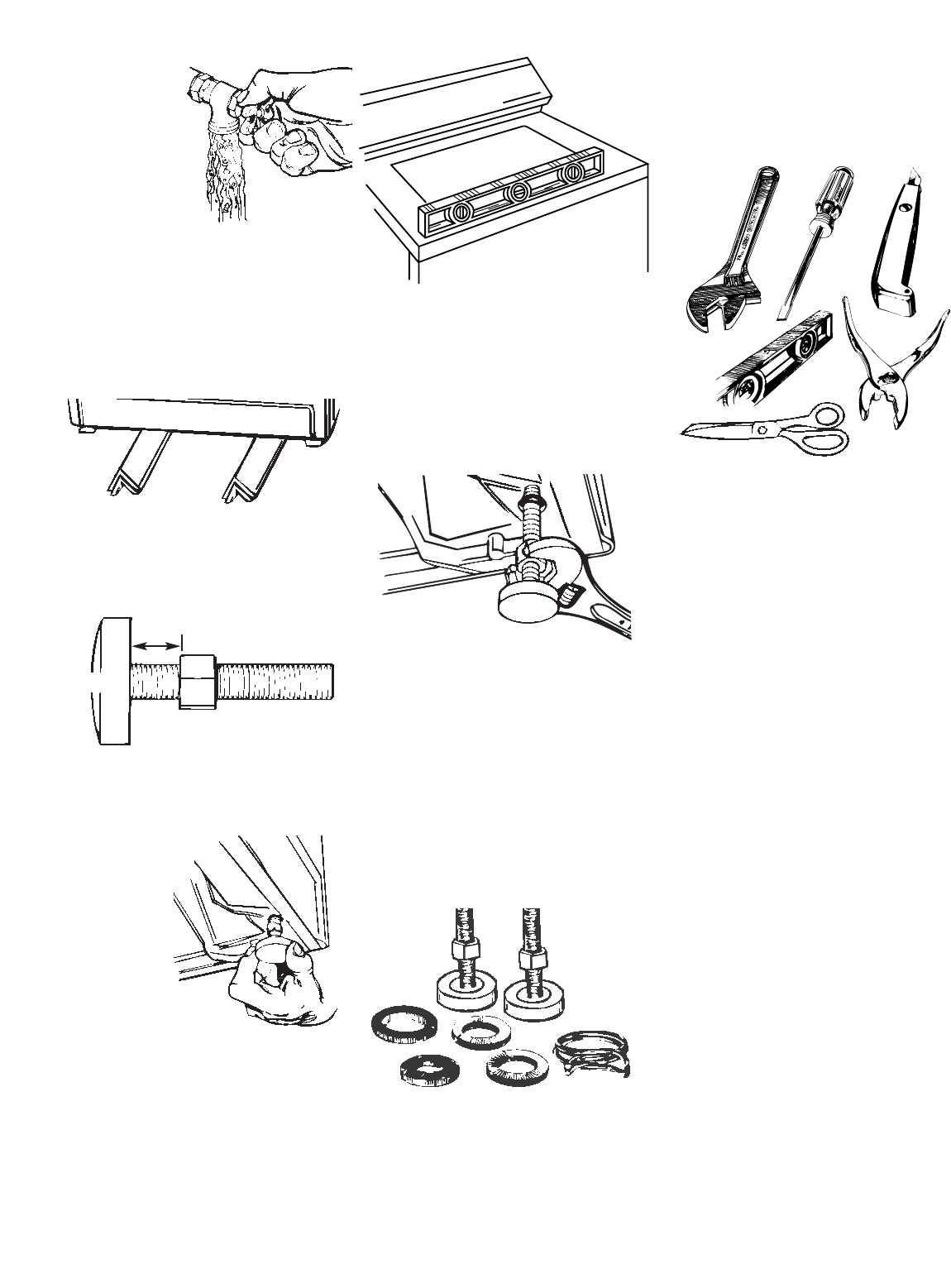
7. Before
attaching water
inlet hoses, run
water through
both faucets into
a bucket. This will
get rid of particles
in water lines that
might clog hoses.
Mark which is the hot water faucet.
8. Attach bottom hose (inlet
marked “H”) to hot water faucet.
Attach top hose (inlet marked “C”) to
cold water faucet. Tighten coupling
to faucet by hand; then use pliers to
make final two-thirds turn.
1/2"
(1.3 cm)
base
nut
10. Use legs and nuts from parts
package. Screw nut down to within
1/2 inch (1.3 cm) of base.
13. Tilt washer forward raising
back legs 1 inch (2.5 cm) off of floor.
To adjust rear self-leveling legs, gently
lower washer to floor. Check levelness
of the washer by placing a
carpenter’s level on top of the
washer, first side to side; then front to
back.
14. If washer is not level, adjust
the front legs up or down. Make final
check with level.
When washer is level, use wrench
to turn nuts on front legs up tightly
against washer base. If nuts are not
tight against washer base, the washer
may vibrate.
18. Check that you have all of
your tools. Check that the shipping
strap was removed from the back of
the washer and used to secure the
drain hose.
If entire strap is not removed, washer
may vibrate and be noisy.
19. Plug power supply cord into
grounded outlet.
Note: On some models, during factory
testing, the timer is advanced partially
into the cycle causing the start button
to be depressed. Allow timer to
advance to the end of the cycle.
When the cycle is complete, the timer
will reset and the start button will
return to the start position. If the timer
is not allowed to advance to the end
of the first cycle and reset, the wash
load will not be completed.
PAGE 5
16. Check that all parts are now
installed. See parts list, Page 3. If there
is an extra part, go back through
steps to see which step was skipped.
17. Turn on water faucets and
check for leaks. Tighten couplings if
there is leaking. Do Not overtighten;
this could cause damage to faucets.
12. Tilt washer backward and
remove corner posts. Gently lower
washer to floor.
Move washer to its permanent
location. Remove cardboard or
hardboard from under washer.
15 . CHECK ELECTRICAL
REQUIREMENTS. BE SURE YOU HAVE
CORRECT ELECTRICAL SUPPLY AND
RECOMMENDED GROUNDING
METHOD.
9. Stack two corner posts on top of
each other. Tilt washer backwards and
insert corner posts 3 inches (7.6 cm) in from
one side of washer as shown. Repeat with
other corner posts on other side of washer.
11. Insert legs
into correct holes at
each front corner of washer until nuts
touch washer. Do Not tighten nuts
until Step 14.



